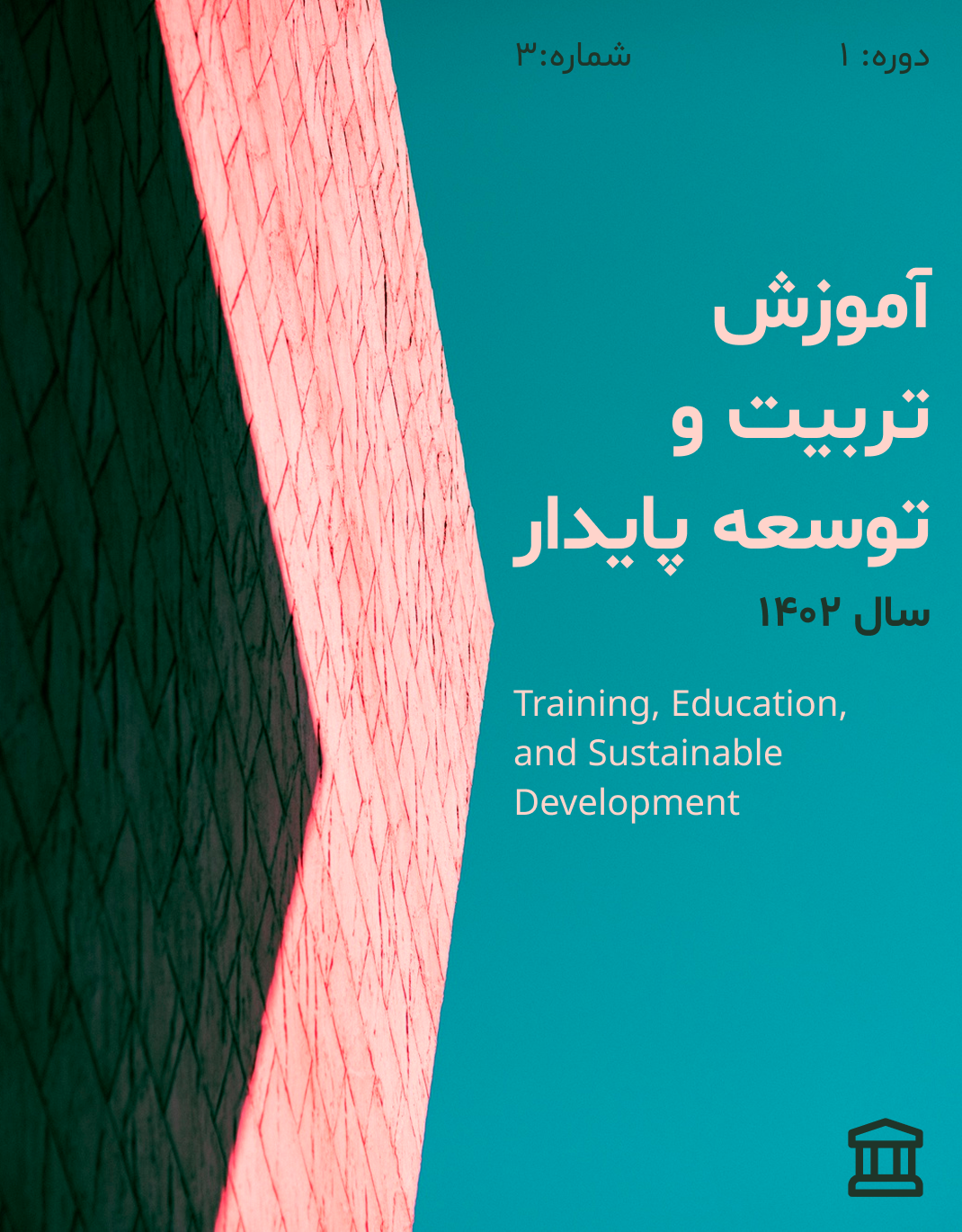تحلیل کیفی ابعاد خودکارآمدی حرفهای معلمان زن در مناطق روستایی
کلمات کلیدی:
خودکارآمدی حرفهای, معلمان زن, آموزش روستایی, تحلیل مضمون, تجارب زیستهچکیده
هدف این پژوهش، شناسایی و تحلیل کیفی ابعاد خودکارآمدی حرفهای معلمان زن شاغل در مناطق روستایی ایران بود. پژوهش حاضر با رویکرد کیفی و به روش تحلیل مضمون انجام شد. شرکتکنندگان شامل ۱۶ معلم زن شاغل در مدارس ابتدایی مناطق روستایی استان تهران بودند که با روش نمونهگیری هدفمند انتخاب شدند. ابزار گردآوری دادهها، مصاحبههای نیمهساختاریافته بود که تا رسیدن به اشباع نظری ادامه یافت. برای تحلیل دادهها از نرمافزار NVivo نسخه ۱۲ استفاده شد و کدگذاری در سه مرحله باز، محوری و گزینشی انجام گرفت. یافتههای پژوهش منجر به شناسایی سه تم اصلی شامل «خودکارآمدی فردی»، «خودکارآمدی بینفردی» و «خودکارآمدی محیطی» شد. هر یک از این تمها دارای زیرتمهایی چون باور به توانمندی تدریس، خودانگیزشی، تعامل با اولیا، مدیریت تعارضات، مدیریت منابع آموزشی و تعامل با جامعه محلی بودند. مشارکتکنندگان بر نقش تجربههای زیسته، مهارتهای ارتباطی، سازگاری با محیط، و خلاقیت در ارتقاء احساس خودکارآمدی خود تأکید داشتند. پژوهش حاضر نشان داد که معلمان زن در مناطق روستایی با وجود محدودیتهای محیطی و ساختاری، با بهرهگیری از ظرفیتهای فردی، اجتماعی و محیطی توانستهاند خودکارآمدی حرفهای خود را حفظ و تقویت کنند. این یافتهها میتواند در تدوین سیاستهای حمایتی، طراحی برنامههای توانمندسازی، و بهبود نظام آموزش در مناطق محروم مؤثر باشد.
دانلودها
مراجع
The objective of this study was to identify and qualitatively analyze the dimensions of professional self-efficacy among female teachers working in rural areas of Iran. This qualitative study was conducted using a thematic analysis approach. Participants included 16 female primary school teachers from rural districts of Tehran Province, selected through purposive sampling. Data were collected via semi-structured interviews and continued until theoretical saturation was reached. Data analysis was performed using NVivo 12 software, following open, axial, and selective coding procedures. The analysis yielded three main themes: "individual self-efficacy," "interpersonal self-efficacy," and "environmental self-efficacy." Subthemes included instructional competence, self-motivation, parental interaction, conflict management, educational resource management, and community engagement. Participants emphasized the importance of lived experiences, communication skills, adaptability, and creativity in fostering their professional self-efficacy. The findings indicate that despite environmental and structural limitations, female teachers in rural areas maintain and enhance their professional self-efficacy by leveraging personal, social, and contextual capacities. These insights can inform supportive policy development, empowerment programs, and educational improvement efforts in underprivileged regions.



